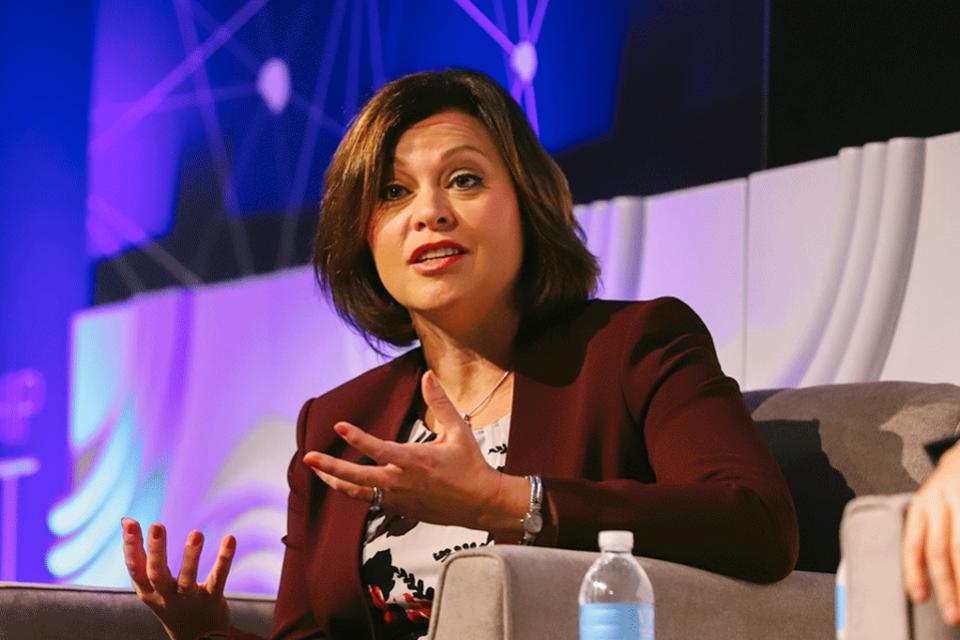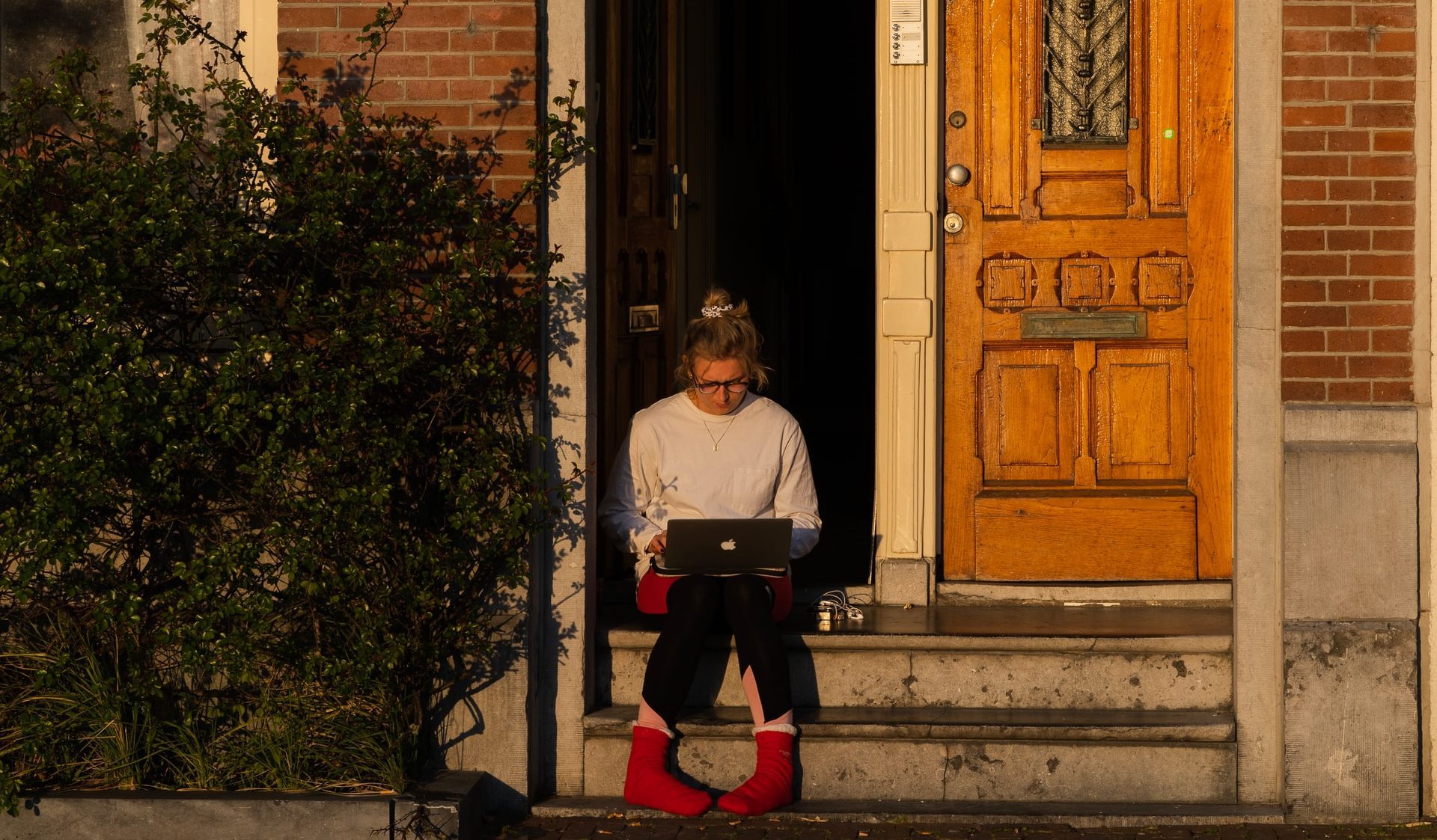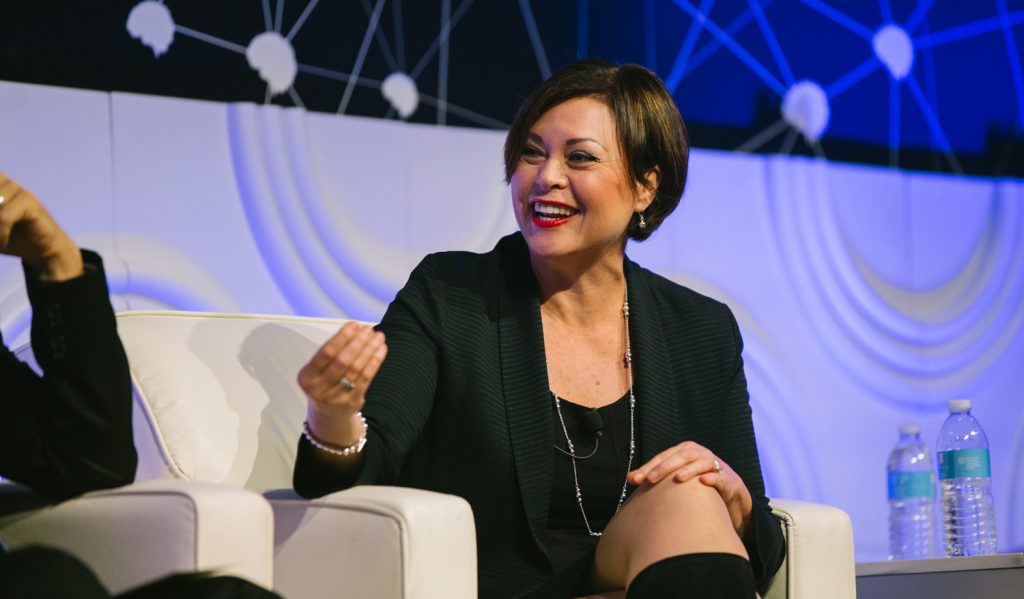For Deb Bubb, creating inclusive cultures at IBM isn’t just a practice that stays within the bounds of her virtual meetings or until the clock strikes 5:00pm. Her dedication flows into other parts of her life, and she’s joined by countless others at IBM and around the world who feel the same way.
In an episode of the Your Brain at Work podcast titled, “Inclusion Matters More Than Ever,” Bubb, IBM’s Head of Leadership, Learning, and Inclusion, shared her experiences with the renowned “IBM Work from Home pledge.” The pledge is a list of personal commitments to being “empathetic, flexible, and adaptive” with colleagues in a way that’s especially relevant in these challenging times.
The pledge, Bubb said, “emerged out of a recognition that while we all have the best of intentions, we’re in each other’s homes in a radically different way now,” and that requires some extra attention to how we incorporate the experiences of work and life.
Like many families right now, Bubb and her husband are working from home, joined by their twin 11-year-old children who are also learning from home. Together, they call their new shared space “Bubb Academy,” creating an identity for this new blend of work, home, and school.
The name “Bubb Academy” represents how their family is coming together as “a new team [with] a new set of purposes and challenges ahead,” Bubb shared on the podcast, which inspired her to integrate her leadership style at work with her parenting style at home.
Taking a page from the design of IBM’s Work from Home pledge, Bubb and her family co-created their own commitments to each other that would be far more effective and engaging than unilateral decision making. Instead of observing an annual “Bring Your Child to Work Day,” she’s bringing her work to her children in an inspiring and transformative way.
Here’s what it’s like.
 A tour inside Bubb Academy
A tour inside Bubb Academy
To build the Academy, Bubb used the NeuroLeadership Institute’s SCARF Model® as an organizing structure that ensured she was accounting for as many ways to respect and amplify her children’s resilience.
SCARF® stands for Status, Certainty, Autonomy, Relatedness, and Fairness, and these five domains capture the different types of social experiences we feel as humans.
Our brains are wired to constantly look for signals to assess if we’re secure in our inner circles or if we’re being pushed to the outskirts. Even little things that people say or do can be seen as fortifying or threatening to our social standing, affecting how we interact with others and take care of ourselves.
NLI often talks about SCARF® as a tool for communication in the workplace that promotes being actively inclusive (instead of accidentally exclusive). This research-based framework was designed to capture how the brain works, so it’s practically limitless in its application across the human experience.
Here’s how the SCARF Model® helped shape Bubb Academy:
Status is a feeling of respect and having a valuable role to play. Bubb started establishing status by explaining to her children what’s going on with the pandemic, and helping them see that “by staying home they were helping the world.”
This gives her children a sense of purpose and helps them see the important role they’re playing in keeping others safe.
Certainty can come from a variety of sources, even if it feels sparse during unpredictable times. Instead of trying to predict the future, Bubb and her family focused on what was within their control and created boundaries of their own.
They agreed on a new schedule and fresh routines that provide consistency in an otherwise turbulent environment. Also, rather than shielding their children from current events, Bubb and her husband have ongoing age-appropriate conversations. This way, it’s not only the adults who can see the big picture.
Autonomy comes from the ability to have choices and control over tasks. Parents and guardians make decisions for the wellbeing of their children all the time, but if a child—or anyone—doesn’t understand why those decisions were made, it can be difficult for them to feel that their ideas and opinions matter.
In setting up Bubb Academy, autonomy came from the ability to share the “pet peeves” they would like to address in their new family pledge. Bubb went on to challenge her children to think of their own creative solutions for those pet peeves—instead of micromanaging or deciding the final plan—which gave them even more autonomy.
Relatedness is more than just being a member of the family. As a social domain, it’s about making sure that someone feels like they are a part of the team and that they are included in the discussions and decisions that impact them.
Founding “Bubb Academy” created a shared identity and common ground, fostering a sense of relatedness. In a time of quarantining and protesting for human rights, we need connection now more than ever.
Fairness is about the perception of equity and equality. It comes both from creating a shared process and following through with the agreed-upon outcomes. Bubb’s children defined an incentive structure with their parents after having a full group discussion on the family’s schedule and what the children would be accountable for each day.
This keeps the agreement grounded in reasonable, attainable goals. When the children decided on the rewards themselves (an extra boost of autonomy), their parents had to commit to following through on providing those rewards. Trust is crucial for this structure to work, or it will all fall apart.

How to learn from the Bubb Academy
While the Bubb Academy pledge is a great example of how to foster leadership skills and critical thinking at home, you don’t need to dive right into something this formal. An easy way to begin is simply inviting children—or friends and loved ones—into conversations that matter.
Bubb told a great story about this in another episode of the Your Brain at Work podcast called “Inclusion and the Reskilling Revolution.”
Last year, Bubb was having Easter dinner with her husband, parents, and a friend. They were having a “very engaged adult dialogue” (or so they thought) about her work in culture, leadership, and inclusion. On the other side of the table, Bubb’s then 10-year-old daughter was listening and becoming more and more curious. Eventually, she politely said that she was interested in what the adults were talking about and asked if she could join the conversation.
The adults were stunned. They hadn’t realized that people at the same table were being overlooked because of their own assumptions on what complete participation looked like for this conversation. They immediately invited Bubb’s daughter to join in (a great status boost), and it showed that there didn’t have to be age restrictions or prerequisites for someone to learn something new.
At that moment Bubb asked herself, “What can I learn from her in this moment? How can I expand my courage to ask for inclusion when I need it? How many times as an adult have I missed the opportunity to create more full inclusion for others?”
We encourage leaders of all kinds—at work, at home, in their communities—to ask themselves the same question. In these challenging times, it takes focus and effort to create new ways of connecting, living, and working together.
How will you find ways to create more inclusion for yourself and others?
[action hash= “828b54ca-f297-476c-82f1-7ac98cbba097”]






